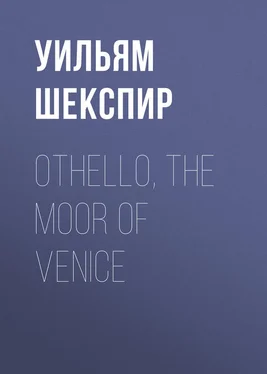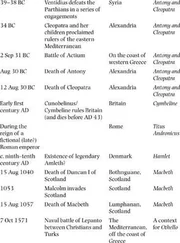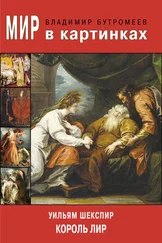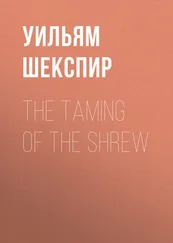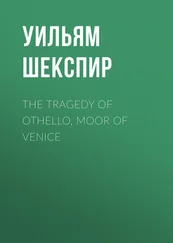Уильям Шекспир - Othello, the Moor of Venice
Здесь есть возможность читать онлайн «Уильям Шекспир - Othello, the Moor of Venice» — ознакомительный отрывок электронной книги совершенно бесплатно, а после прочтения отрывка купить полную версию. В некоторых случаях можно слушать аудио, скачать через торрент в формате fb2 и присутствует краткое содержание. Жанр: Европейская старинная литература, Драматургия, foreign_dramaturgy, на английском языке. Описание произведения, (предисловие) а так же отзывы посетителей доступны на портале библиотеки ЛибКат.
- Название:Othello, the Moor of Venice
- Автор:
- Жанр:
- Год:неизвестен
- ISBN:нет данных
- Рейтинг книги:3 / 5. Голосов: 1
-
Избранное:Добавить в избранное
- Отзывы:
-
Ваша оценка:
- 60
- 1
- 2
- 3
- 4
- 5
Othello, the Moor of Venice: краткое содержание, описание и аннотация
Предлагаем к чтению аннотацию, описание, краткое содержание или предисловие (зависит от того, что написал сам автор книги «Othello, the Moor of Venice»). Если вы не нашли необходимую информацию о книге — напишите в комментариях, мы постараемся отыскать её.
Othello, the Moor of Venice — читать онлайн ознакомительный отрывок
Ниже представлен текст книги, разбитый по страницам. Система сохранения места последней прочитанной страницы, позволяет с удобством читать онлайн бесплатно книгу «Othello, the Moor of Venice», без необходимости каждый раз заново искать на чём Вы остановились. Поставьте закладку, и сможете в любой момент перейти на страницу, на которой закончили чтение.
Интервал:
Закладка:
BRABANTIO
A maiden never bold:
Of spirit so still and quiet that her motion
Blush'd at herself; and she, – in spite of nature,
Of years, of country, credit, everything, —
To fall in love with what she fear'd to look on!
It is judgement maim'd and most imperfect
That will confess perfection so could err
Against all rules of nature; and must be driven
To find out practices of cunning hell,
Why this should be. I therefore vouch again,
That with some mixtures powerful o'er the blood,
Or with some dram conjur'd to this effect,
He wrought upon her.
DUKE
To vouch this is no proof;
Without more wider and more overt test
Than these thin habits and poor likelihoods
Of modern seeming do prefer against him.
FIRST SENATOR
But, Othello, speak:
Did you by indirect and forcèd courses
Subdue and poison this young maid's affections?
Or came it by request, and such fair question
As soul to soul affordeth?
OTHELLO
I do beseech you,
Send for the lady to the Sagittary,
And let her speak of me before her father.
If you do find me foul in her report,
The trust, the office I do hold of you,
Not only take away, but let your sentence
Even fall upon my life.
DUKE
Fetch Desdemona hither.
OTHELLO
Ancient, conduct them; you best know the place. —
[Exeunt Iago and Attendants.]
And, till she come, as truly as to heaven
I do confess the vices of my blood,
So justly to your grave ears I'll present
How I did thrive in this fair lady's love,
And she in mine.
DUKE
Say it, Othello.
OTHELLO
Her father lov'd me; oft invited me;
Still question'd me the story of my life,
From year to year, – the battles, sieges, fortunes,
That I have pass'd.
I ran it through, even from my boyish days
To the very moment that he bade me tell it:
Wherein I spake of most disastrous chances,
Of moving accidents by flood and field;
Of hair-breadth scapes i' the imminent deadly breach;
Of being taken by the insolent foe,
And sold to slavery; of my redemption thence,
And portance in my travels' history:
Wherein of antres vast and deserts idle,
Rough quarries, rocks, and hills whose heads touch heaven,
It was my hint to speak, – such was the process;
And of the Cannibals that each other eat,
The Anthropophagi, and men whose heads
Do grow beneath their shoulders. This to hear
Would Desdemona seriously incline:
But still the house affairs would draw her thence;
Which ever as she could with haste despatch,
She'd come again, and with a greedy ear
Devour up my discourse; which I observing,
Took once a pliant hour; and found good means
To draw from her a prayer of earnest heart
That I would all my pilgrimage dilate,
Whereof by parcels she had something heard,
But not intentively; I did consent;
And often did beguile her of her tears,
When I did speak of some distressful stroke
That my youth suffer'd. My story being done,
She gave me for my pains a world of sighs:
She swore, – in faith, 'twas strange, 'twas passing strange;
'Twas pitiful, 'twas wondrous pitiful:
She wish'd she had not heard it, yet she wish'd
That heaven had made her such a man: she thank'd me;
And bade me, if I had a friend that lov'd her,
I should but teach him how to tell my story,
And that would woo her. Upon this hint I spake:
She lov'd me for the dangers I had pass'd;
And I lov'd her that she did pity them.
This only is the witchcraft I have us'd: —
Here comes the lady; let her witness it.
[Enter Desdemona, Iago, and Attendants.]
DUKE
I think this tale would win my daughter too. —
Good Brabantio,
Take up this mangled matter at the best.
Men do their broken weapons rather use
Than their bare hands.
BRABANTIO
I pray you, hear her speak:
If she confess that she was half the wooer,
Destruction on my head, if my bad blame
Light on the man! – Come hither, gentle mistress:
Do you perceive in all this noble company
Where most you owe obedience?
DESDEMONA
My noble father,
I do perceive here a divided duty:
To you I am bound for life and education;
My life and education both do learn me
How to respect you; you are the lord of duty, —
I am hitherto your daughter: but here's my husband;
And so much duty as my mother show'd
To you, preferring you before her father,
So much I challenge that I may profess
Due to the Moor, my lord.
BRABANTIO
God be with you! – I have done. —
Please it your grace, on to the state affairs:
I had rather to adopt a child than get it. —
Come hither, Moor:
I here do give thee that with all my heart
Which, but thou hast already, with all my heart
I would keep from thee. – For your sake, jewel,
I am glad at soul I have no other child;
For thy escape would teach me tyranny,
To hang clogs on them. – I have done, my lord.
DUKE
Let me speak like yourself; and lay a sentence
Which, as a grise or step, may help these lovers
Into your favour.
When remedies are past, the griefs are ended
By seeing the worst, which late on hopes depended.
To mourn a mischief that is past and gone
Is the next way to draw new mischief on.
What cannot be preserved when fortune takes,
Patience her injury a mockery makes.
The robb'd that smiles steals something from the thief;
He robs himself that spends a bootless grief.
BRABANTIO
So let the Turk of Cyprus us beguile;
We lose it not so long as we can smile;
He bears the sentence well, that nothing bears
But the free comfort which from thence he hears;
But he bears both the sentence and the sorrow
That, to pay grief, must of poor patience borrow.
These sentences, to sugar or to gall,
Being strong on both sides, are equivocal:
But words are words; I never yet did hear
That the bruis'd heart was piercèd through the ear. —
I humbly beseech you, proceed to the affairs of state.
DUKE
The Turk with a most mighty preparation makes for Cyprus. – Othello, the fortitude of the place is best known to you; and though we have there a substitute of most allowed sufficiency, yet opinion, a sovereign mistress of effects, throws a more safer voice on you: you must therefore be content to slubber the gloss of your new fortunes with this more stubborn and boisterous expedition.
OTHELLO
The tyrant custom, most grave senators,
Hath made the flinty and steel couch of war
My thrice-driven bed of down: I do agnize
A natural and prompt alacrity
I find in hardness; and do undertake
These present wars against the Ottomites.
Most humbly, therefore, bending to your state,
I crave fit disposition for my wife;
Due reference of place and exhibition;
With such accommodation and besort
As levels with her breeding.
DUKE
If you please,
Be't at her father's.
BRABANTIO
I'll not have it so.
OTHELLO
Nor I.
DESDEMONA
Nor I. I would not there reside,
To put my father in impatient thoughts,
By being in his eye. Most gracious duke,
To my unfolding lend your prosperous ear;
And let me find a charter in your voice
To assist my simpleness.
Интервал:
Закладка:
Похожие книги на «Othello, the Moor of Venice»
Представляем Вашему вниманию похожие книги на «Othello, the Moor of Venice» списком для выбора. Мы отобрали схожую по названию и смыслу литературу в надежде предоставить читателям больше вариантов отыскать новые, интересные, ещё непрочитанные произведения.
Обсуждение, отзывы о книге «Othello, the Moor of Venice» и просто собственные мнения читателей. Оставьте ваши комментарии, напишите, что Вы думаете о произведении, его смысле или главных героях. Укажите что конкретно понравилось, а что нет, и почему Вы так считаете.
